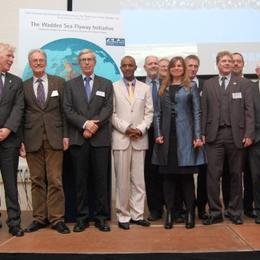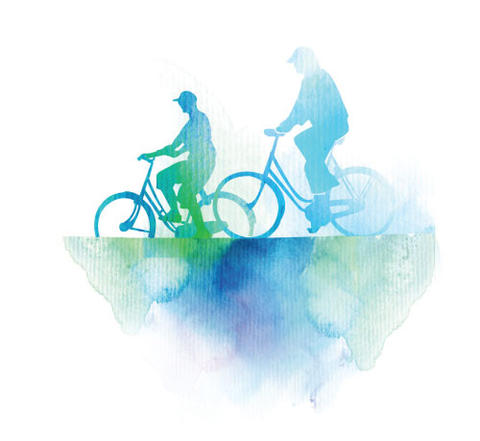
Sustainable tourism
Each year 10 million overnight guests and 30–40 million day visitors come to the Wadden Sea islands and the mainland coast, spanning from Texel in the Netherlands to Skallingen in Denmark.
It’s a popular holiday destination. Tourists are attracted by the unique natural landscape; a landscape that is perfect for recreation and experiencing nature. The tourism industry is the most important income source in the region with a yearly turnover of 3–5 billion Euro.
Sustainable tourism is on the rise. At its heart, is the intention that whatever is undertaken, it must not weaken the values for which the Wadden Sea World Heritage has been listed, and should in fact seek to enhance them.
- What is sustainable tourism?
-
UNESCO defines sustainable tourism as “tourism that respects both local people and the traveller, cultural heritage and the environment”.
In the Wadden Sea World Heritage Destination, sustainable tourism:
- is aware of the natural values of the Wadden Sea and accepts the global responsibility for its protection as result from the World Heritage status;
- contributes to the protection, conservation and presentation of the Wadden Sea World Heritage;
- promotes the cooperation with tourism stakeholders in a participatory approach to maximise conservation, and presents outcomes whilst minimising the threats and adverse impacts from tourism;
- presents the Wadden Sea World Heritage Destination in an adequate, consistent and comprehensive way which mobilises awareness, understanding and support for its protection;
- meets community and economic benefits for present and future generations and at the same time sustaining the conservation objectives;
- offers high quality low impact tourism (products, services, facilities), which considers the ecological requirement of the property; and
- contributes to regional development.
The World Heritage site status opened up new potential in terms of nature tourism. This is essential to economic success but can also help the environment. Nature conservation can benefit from the increasing awareness and popularity of the Wadden Sea area as a holiday destination – and as visitors become aware of nature, they will contribute to its protection and conservation. And by leaving natural resources and local customs intact, the Wadden Sea World Heritage can provide future tourists with the same enjoyable experience.
Through the launch of the joint strategy for “Sustainable Tourism in the Wadden Sea World Heritage Destination”, more than 350 stakeholders on local and national level, regional advisory boards and committees, and many other organizations have provided an invaluable contribution to a long-term transboundary framework for nature-friendly tourism development in the three countries of the Wadden Sea World Heritage destination.
As a sustainable traveler, you should support businesses that safeguard natural resources, protect the exceptional biodiversity of the Wadden Sea, and contribute to the wellbeing of local communities. You will also help to ensure that these treasures will also be there for future generations to enjoy.
Case studies
- World Heritage Visibility
- With the World Heritage inscription of 2009, a joint communication and marketing campaign was launched with stakeholders in the Netherlands and Germany. A common logo, a common road sign, an official World Heritage website, a video and an information flyer raised the profile of the World Heritage site. Alongside this, more than 65 information modules have been prepared and inhabitants and visitors have been telling their stories about the Wadden Sea under the motto: ‘being part of the World Heritage’.
- DB Fahrtziel Natur
-

Destination Nature, a cooperation between Deutsche Bahn and the three major German conservation associations Bund für Umwelt und Naturschutz Deutschland e. V. (BUND), Naturschutzbund Deutschland e. V. (NABU) and Verkehrsclub Deutschland e. V. (VCD) combine ecologically acceptable travel combined with an active nature experience. To ensure that people can explore the Wadden Sea World Heritage with minimum ecological impact, Destination Nature provides information about rail connections to the regions and local mobility services.
http://www.fahrtziel-natur.de/regional/view/fzn/wattenmeer/infos.shtml - Urlauberbus
-
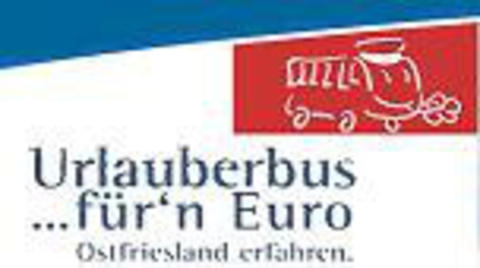
The ‘Urlauberbus’ in Lower Saxony, winner of the national ‘Fahrtziel Natur’ award 2012, offers environmentally friendly mobility opportunities to explore the National Park and the hinterland. For 1 Euro per ride, people can use every bus in the Ems-Jade area.
http://www.urlauberbus.info - National Park Partnership
-
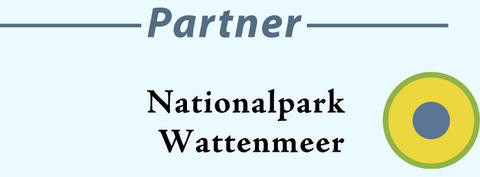
The German National Parks have established a public-private partnership scheme. Members of the scheme come from accommodation, restaurants, nature and tourism organisations, information centres, tour operators and the transport sector. The scheme sets out specific environmental criteria and commitment to the National Park, with an aim for high quality service and nature-friendly economies.
http://www.nationalpark-partner-sh.de
http://www.nationalpark-partner-nds.de - Waddengoud
-
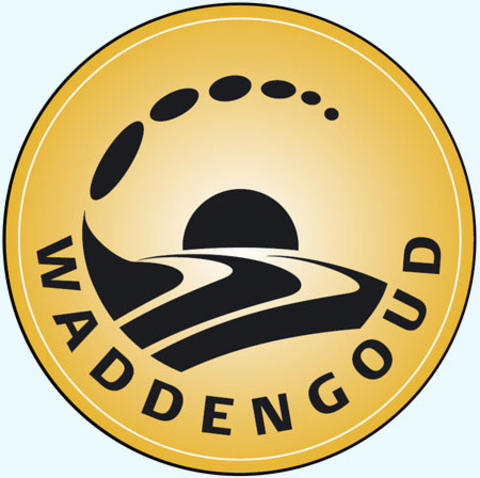
The Dutch Wadden Gold is a label for local products and services from the Dutch Wadden Sea Region. The brand is managed by the Foundation Wadden Group, a non-profit foundation and includes 300 individual products (mainly agricultural and mostly organic produced) and about 75 services (tourist, gastronomic, art and culture).
http://www.waddengoud.nl/
